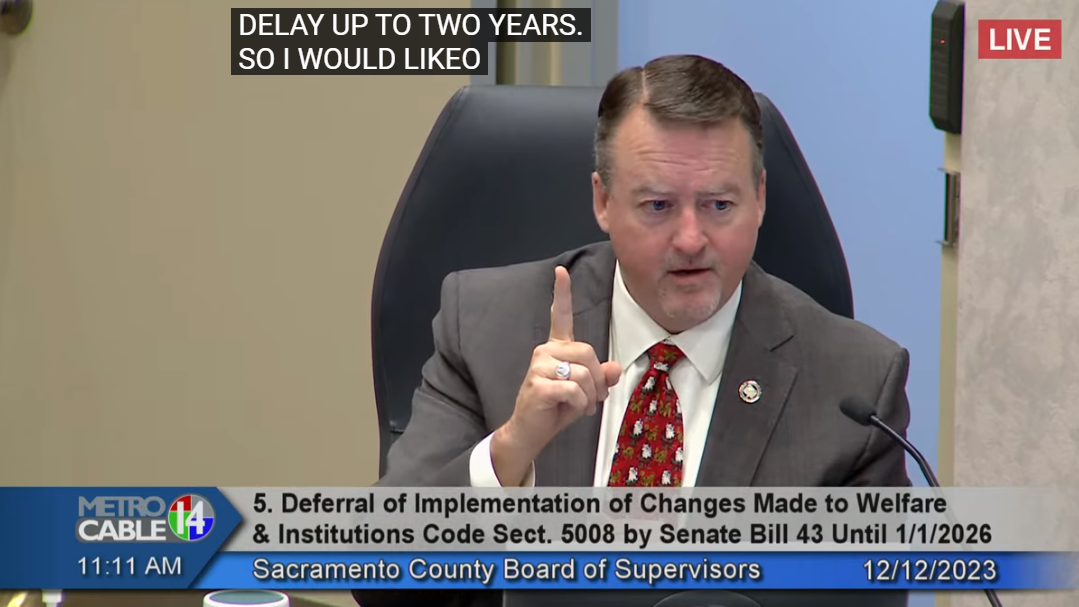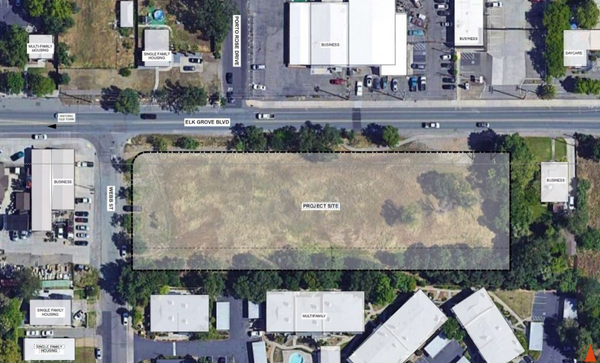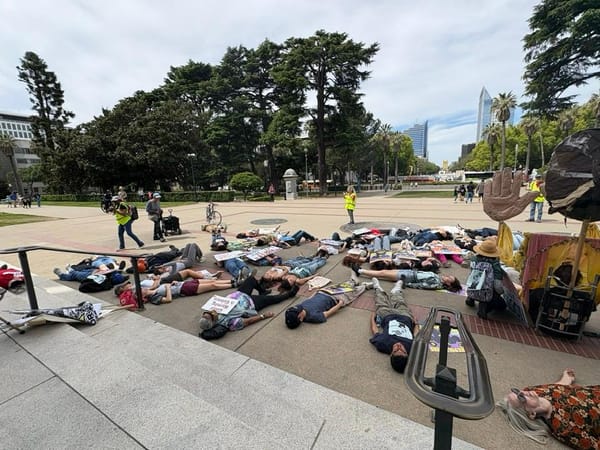Sacramento County Supervisors delay implementation of conservatorship law to address homelessness

At today’s Sacramento County Board of Supervisors regular meeting, the five-member body unanimously agreed to defer implementation of California Senate Bill 43 by one year.
In October, Gov. Gavin Newsom signed the bill expanding involuntary mental commitments into law. The bill “expands the definition of ‘gravely disabled’ to also include a condition in which a person, as a result of a severe substance use disorder, or a co-occurring mental health disorder and a severe substance use disorder is unable to provide for their basic personal needs for food, clothing, or shelter or has been found mentally incompetent, as specified.”
The bill expands on the Lanterman-Petris-Short Act of 1967, which “provides[d] for the involuntary commitment and treatment of a person who is a danger to themselves or others or who is gravely disabled.”
During a staff presentation, supervisors were advised the law allows for up to two years deferral for implementation. Only San Fransico and Sal Luis Obispo counties have decided for immediate compliance, and all other California counties are deferring until January 1, 2026.
Additionally, the staff noted the delayed implementation would enable ample time for compliance and developing a meaningful plan.
The item, which was placed on the consent calendar but changed to a full hearing, drew several public comments. The speakers were split between supporters of the delay and those who urged immediate implementation.
One person who identified herself as Diana Burdick urged immediate action on the expanded commitments. In her comments (see video below), Burdick said she has a son living on the streets, and rapid implementation would allow him to receive help quickly.
“SB 43 is a possible lifeline. My son is delusional and not on any county assistance program or accepting services except when he’s incarnated,” she said. “I don’t believe he has two years in him to wait for assistance.”
Choking up as she spoke, Ms. Burdick added, “I know that I do not have the strength to continue to witness my son dying on the streets of Rancho Cordova.”
Those who supported the delay agreed with the staff recommendation that the program should not start until 2026 so a comprehensive approach could be developed. The supporters cited reasons ranging from individual constitutional rights to concerns that a quick implementation would be unsuccessful in addressing the mental health issues of the unhoused.
Opening the deliberations, Supervisor Pat Hume said he supports SB 43 and agreed immediate implementation was not practical. However, Hume suggested the county should consider implementation by January 1, 2025, with the option to extend it one additional year if needed.
“We absolutely need to keep the sense of urgency, “he said.
Hume’s colleagues agreed to his suggestion to implement by January 1, 2025, with the understanding it could be delayed until January 1, 2026. The supervisor will be updated on the project’s progress in June and October 2025.



